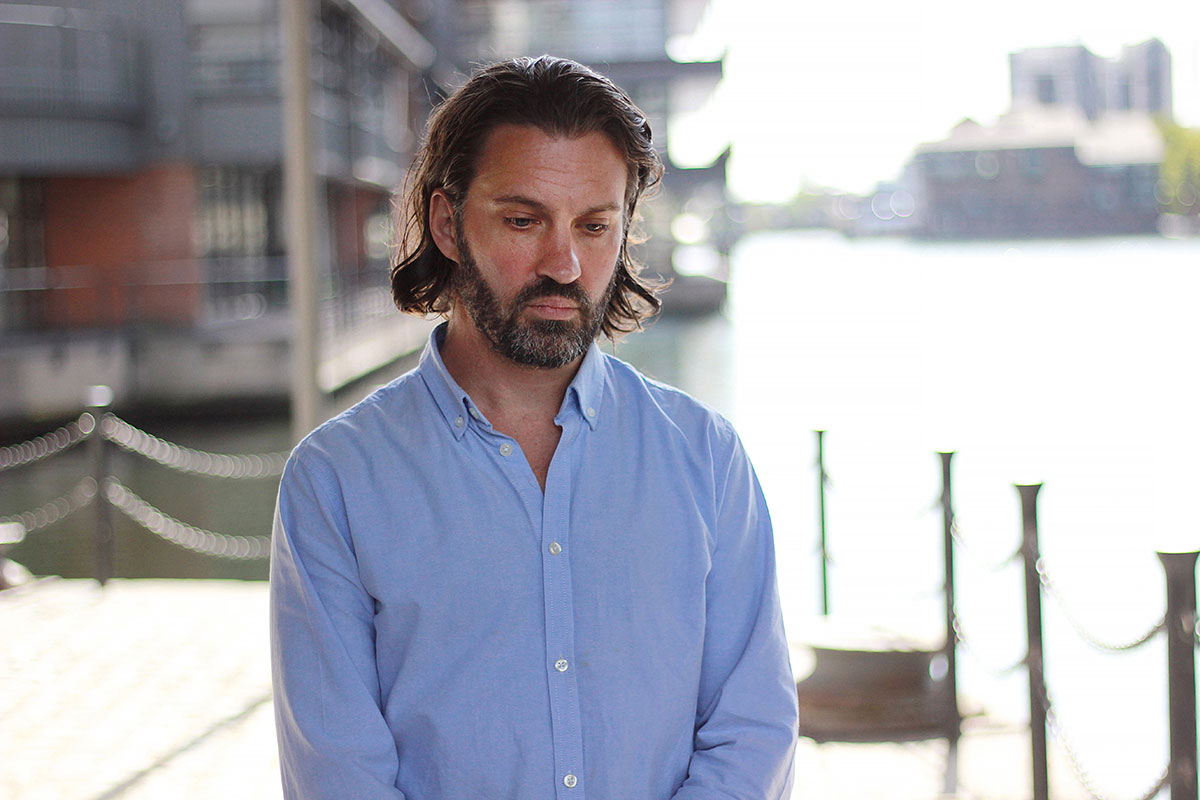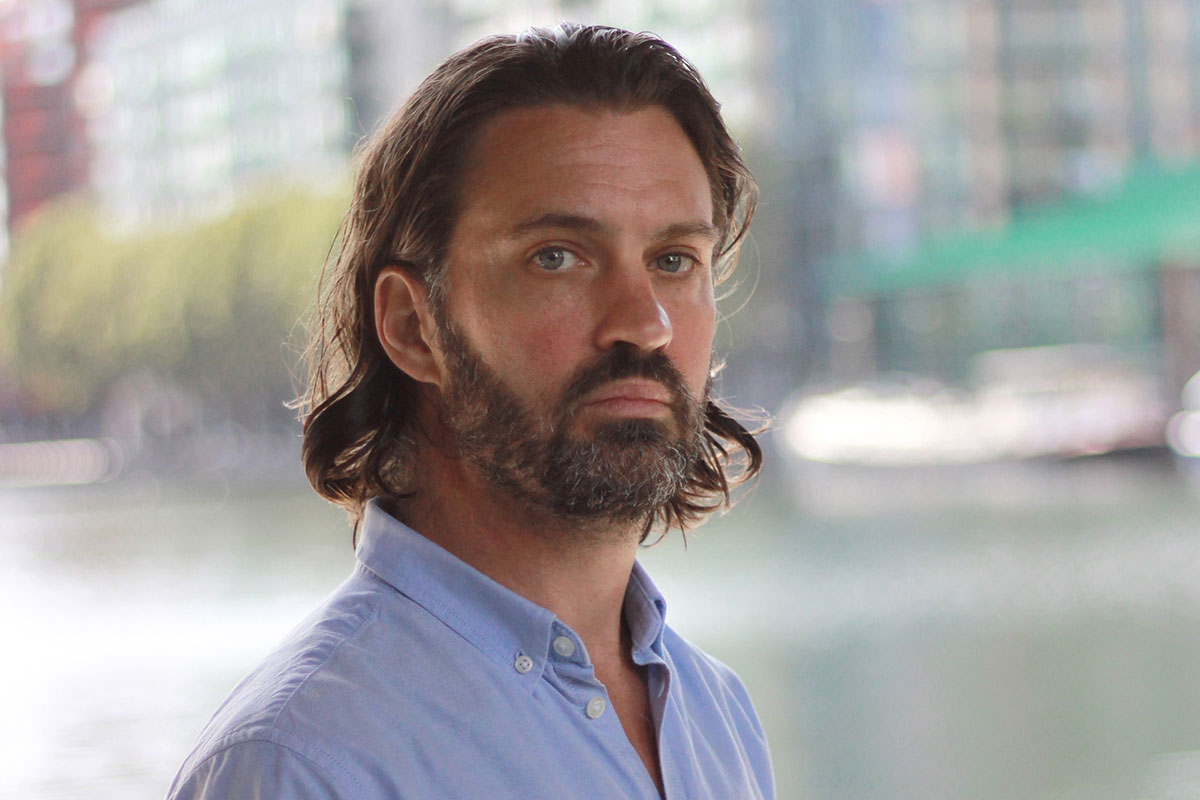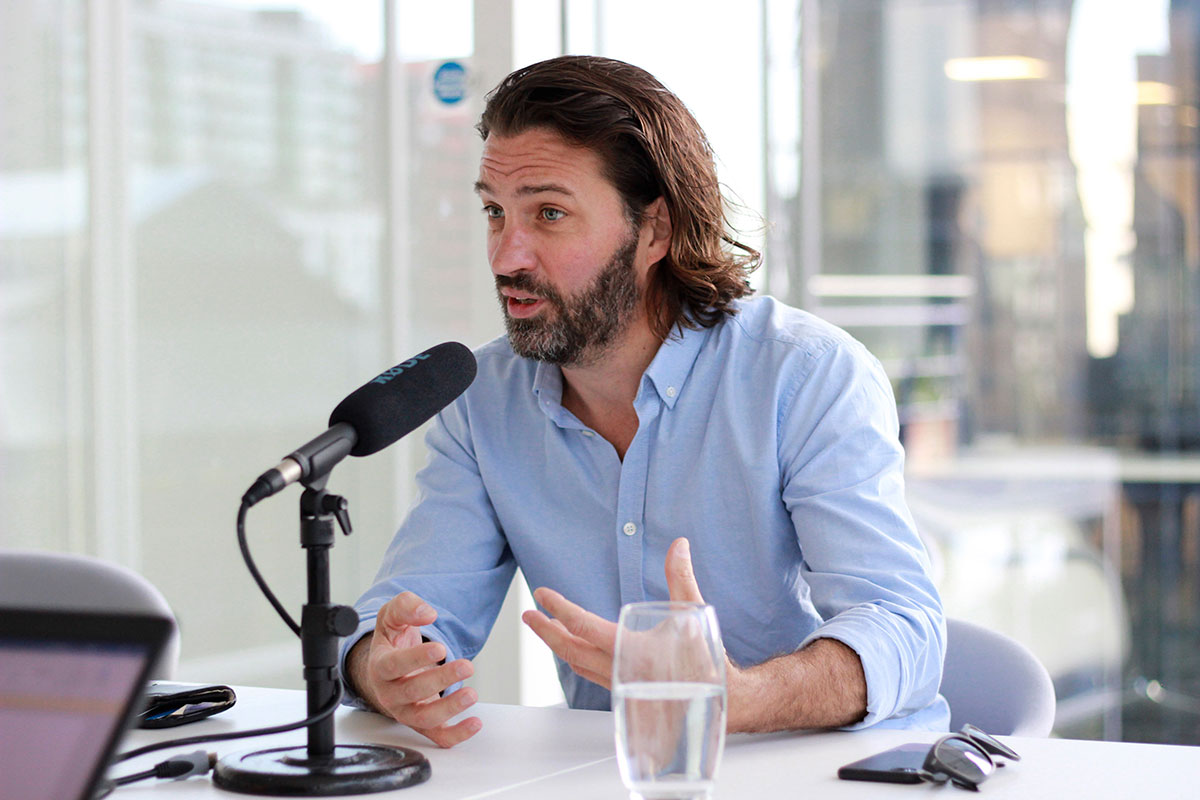‘My time at Number 10’: an interview with former government housing advisor Toby Lloyd
Last year, Shelter’s policy chief Toby Lloyd was ushered into Number 10 as Theresa May’s housing advisor. He tells Peter Apps about life at the heart of a floundering government. Photography by Jon Heal
When Toby Lloyd was invited to Number 10 Downing Street to give a presentation on his ideas to solve the housing crisis, he could not have realised quite how life-changing a meeting it would be.
Then head of policy at homelessness charity Shelter, he impressed Number 10’s policy team so much that they phoned him up the next day and offered him a job.
Over the next 14 months, he lived and worked right at the beating heart of government – a resident (self-described) housing nerd inside the small band of policy specialists directly advising prime minister Theresa May.
And then, just as suddenly as it began, it was over. Ms May lost one Brexit battle too many and departed office in July. Mr Lloyd went with her – flotsam in the political wave crashing over Westminster.
He meets Inside Housing after two months back in the real world.
Arriving late, he cracks jokes about how busy it is being unemployed. He has grown long, flowing hair and now sports a look that sits somewhere between a retired New Zealand cricketer and a classical portrayal of Jesus. His appearance is certainly a long way from that of your stereotypical Tory – although this is unsurprising, given that he is not one. What may be more surprising is that not being a Conservative did not leave him out of place in Number 10.
The policy unit advisors, he explains, are hired as subject specialists rather than the general political advisors who float around the Westminster departments. This means there is less of a party-political flavour.
“I wasn’t particularly unusual in being a non-Conservative,” he says. “There were other people who were brought in for social care particularly… who were not Conservatives by any stretch.”
But it was his ability to talk to Conservatives that carried him into Downing Street. In his years at Shelter he had developed what he calls a “civic housebuilding pitch” – essentially a way of packaging the charity’s message to appeal to centre-right politicians. He credits Prince Charles with inspiring this vision.
“I got invited to one of those housing jamboree events which just so happened to be at Clarence House as the Prince’s Foundation was unveiling its latest piece of work,” he explains. “There were a huge number of civil society and influencer organisations there basically parroting the same analysis as I’d been plugging at Shelter for many years.
“It was exactly the same – the land market is broken, we don’t build enough homes, they’re not the right type, they’re not affordable to local people and that fuels nimbyism, nothing is working here, we need a new approach based on quality and affordability.”
He realised that with a simple tweak of focus, Shelter’s message could gain traction with a class of politicians who had previously overlooked it. The approach worked.
“The first time I tried it at a Conservative Party conference fringe event I had a room full of councillors from places like Buckinghamshire singing my praises and clamouring for more,” he says. “All I’d done is actually [use] the same Shelter housing market critique I always did, but accompanied with pictures of Prince Charles’ developments… The political divide on this is ephemeral, it’s not real.”
It was this same pitch that caught the attention of Number 10. The lure of such a position of influence could not be ignored – whatever views he held personally about the party offering it.
“All I’d done is actually [use] the same Shelter housing market critique I always did, but accompanied with pictures of Prince Charles’ developments… The political divide on this is ephemeral, it’s not real”
“You can’t solve the housing crisis without dealing with government,” he says. “If you actually want to fix the housing system for millions of people in this country, you have to have the state do most of the heavy lifting because the problem is just too big.”
By the time he joined in April 2018, Ms May had been without a majority for almost a year and Brexit was taking up more and more of the political agenda. But she remained determined, he says, to deliver something on her “burning injustices” agenda – the speech she famously gave
promising social reform after her appointment in 2016.
“[The speech] was up outside her office on a poster,” Mr Lloyd says. “It was referred to frequently – people took it very seriously. Of course, inevitably, Brexit took up so much of the headspace, bandwidth, political energy that there just wasn’t that much left for anything else. But even without Brexit this was a minority government with a lot of divisions within itself and that inevitably means the prime minister’s agenda doesn’t become law overnight.”
Key among these divisions was pushback over parts of Ms May’s housing agenda from Philip Hammond’s Treasury.
“The Treasury’s sacred duty is to look after the nation’s finances and they frequently interpret that as stopping reckless politicians spending vast amounts of money on things they think will be politically popular but might not work,” he says.
“That is fair enough – that’s their job – but if you are one of the people trying to get money spent on things it can be quite frustrating.”
Mr Hammond’s Treasury took a particular interest in what was being proposed on housing.
“Philip Hammond took an awfully strong personal interest in housing and planning issues,” Mr Lloyd says. “I was often quite surprised how personally involved he was on issues of housing policy.”
It was partly these divisions and political struggles that led to the most significant moment of Ms May’s premiership from a housing perspective.
In October 2018, she used her party conference speech to announce the surprise scrapping of the cap on council borrowing for new housing – potentially opening the door to the return of mass council housebuilding for the first time in a generation.
“There was a real revelation that things had gone dreadfully wrong and government had an urgent moral duty to help the people directly affected [by the Grenfell tragedy]”
“Party conferences… are the one part of the year which is driven entirely by the politicians and not the civil service so it does allow things to be pulled out of the hat a bit more,” he says.
“[Usually] the Treasury has a lot of opportunities to either block things from happening or then slow them down and obstruct them once they’ve been announced. Because of the party conference process this was able to just be announced.
“But then to be enacted, all it took was the secretary of state to write to councils. So it was much harder for the Treasury to then slow down the process.”
The Treasury disliked this policy for the simple reason that the borrowing would go on the government balance sheet. That fact has always driven a dislike of council housebuilding in the department.
“The reason they [the Treasury] are so opposed to that, even at a time when they were agreeing to spend money on social housing, is because of the balance sheet issue,” Mr Lloyd explains. “They will tell you repeatedly that every social home built by a council costs twice as much as a social home built by a housing association.
“Exactly the same money, borrowed from exactly the same people, to build exactly the same house, to house exactly the same people, but just because of the Treasury scoring rules, one counts on the balance sheet and one doesn’t. For a lot of people in the real world that doesn’t make an awful lot of sense, but it matters hugely to the Treasury.”
Aside from the borrowing cap, one of the key focuses of housing policy during this time was dealing with the fallout from the Grenfell Tower fire. Mr Lloyd says this was a genuinely high priority for Ms May.
“There was a real revelation that things had gone dreadfully wrong and government had an urgent moral duty to help the people directly affected and to address some of these issues which underlaid them,” he said.
“Unfortunately, all of those turned out to be things which were long, slow, difficult and expensive to do so I can totally understand the criticism that the response was inadequate but… it was not [for] a cynical reason.”
In particular, he was frustrated by the slow pace at which the government accepted the need to pay for the removal of cladding – offering £400m to social housing providers in spring 2018 and a further £200m for the private sector in May this year.
“The government was always going to end up paying for that, one way or another,” he says. “By delaying and delaying and then being seen to be forced into it you’ve still spent the money but managed to look mean and cruel at the same time.
“To position yourself repeatedly in a place where you look both incompetent and cruel is unwise, but we seemed to manage that quite regularly”
“The old stereotype of Conservative governments was that they were competent but cruel, whereas Labour governments were kind but incompetent. To position yourself repeatedly in a place where you look both incompetent and cruel is unwise, but we seemed to manage that quite regularly.”
He cites the glacially slow progress of the Social Housing Green Paper, designed to reform the sector, in part to take account of the issues raised by Grenfell, as a major disappointment – both for him personally and for the then-prime minister.
“The big one that didn’t get finished and was a real regret to her and to me was the Social Housing Green Paper: improving regulation for the housing sector, consumer rights, that whole package of stuff,” he says. “It was a source of real regret that we weren’t able to get that to the next stage of the reform process before she left.”
This was not the only unfinished business from Ms May’s time. An announcement about ending ‘no-fault’ evictions in the private rented sector came right at the end of her tenure, with the consultation still open when she left. Does he hold any hope that the new regime will pick up these policies and carry them on?
“I would hope… just given the policy and the political logic they will carry on with those reforms – I mean why not?” he says. “But really, I have no idea what is going to happen.”
Who does? Politics has never been less predictable. But Mr Lloyd’s guesses should hold some weight. There are few in the housing sector who have been so close to the heart of the machine.














